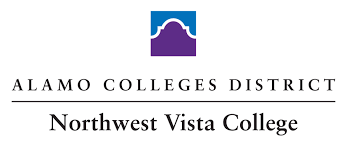CASE STUDY | NORTHWEST VISTA COMMUNITY COLLEGE
Building a Talent-Strong Texas through Strategic Scheduling

The Challenge
Help students earn a degree or credential that provides a living wage
With the passage of House Bill 8 (HB 8), Northwest Vista Community College, San Antonio, is one of several Texas-based community colleges focusing on performance-based funding. HB 8 works to increase access to higher education for low-income students and to improve the overall affordability of attending community college in Texas.
Many of the institution’s students come with a range of work, family, and developmental education needs and desire a schedule that is adaptable to wherever they are in life. But figuring out how to accommodate a student base composed of high school students, dual credit students, full- and part-time students, and transfer students is no easy task. The aspiration to meet students where they are has set the institution on a path to improving scheduling patterns — offering the right classes at the right time and in the right modality to lead students toward completion and the achievement of a livable wage career.
Our moonshot goal is to end inter-generational poverty within San Antonio. This includes placing a focus on the jobs and wages and build that into how we offer courses in a strategic way.
RUSS FROHARDT
Dean for Academic Success, Northwest Vista Community College
The Solution:
Build pathways to support achieving workforce-aligned credentials of value
To meet the needs of a range of students, the institution is working closely with Ad Astra to determine scheduling patterns. Frohardt compared this effort to figuring out a large puzzle. Through its work with Ad Astra, the institution can zero in on the trends and milestones that will support students in meeting certain benchmarks and the courses that will help them reach the associated skills, certificate, or degree.
This has enabled graduation rates to rise 30% and transfer rates have also increased as students are able to get the courses they need in the modality they need to complete. The institution was also able to hire more faculty and upgrade facilities using data analytics from Ad Astra.
Data is particularly important as the institution embarks on a new bachelor’s program in cloud computing. Building off an already strong associate’s degree in the topic, the community college is pulling together the data to determine the right sets of courses and how to avoid toxic/unhealthy course combinations.
The fully online degree program will also use flex scheduling of 8-week schedules with multiple starts throughout the year, and the Ad Astra tools will be critical in this process, Frohardt acknowledged. Eight-week terms allow students to go to school year-round and complete a degree in less than two years.
“We are tracking the change in growth, and we have strategic initiatives in place to grow,” Frohardt concluded. “Ad Astra helps us put together a schedule to support our students.”
awarded, including badges, certificates,
and degrees that position graduates for
well-paying jobs.
high-demand fields where employers
are looking for skilled employees.
Successful student transfers
from community colleges to
four-year universities.
Fast Facts
Percent increase in transfer rates
Percent improvement in graduation rates
Percent growth in enrollment
School Background
Northwest Vista Community College, San Antonio, Texas, is one of the five community college institutions that comprise the Alamo Colleges District, serving Bexar County. The institution offers two-year degrees, a 1-year certificate, and a Bachelor of Applied Technology in Cloud Computing. The district was founded in 1945 as the San Antonio Union Junior College District with adoption of the Alamo name in 1945. Northwest Vista Community College is accredited by the Southern Association of Colleges and Schools Commission.
In May 2024, Northwest Vista Community College was named a 2025 semifinalist in the Aspen Prize for Community College Excellence. The Aspen Prize is the nation’s signature recognition for America’s community colleges. The prize honors institutions of outstanding achievement in teaching and learning, certificate and degree completion, transfer and bachelor’s attainment, workforce success, access, and equity for students of color and students from low-income backgrounds








.png?width=84&height=81&name=search%20(1).png)







